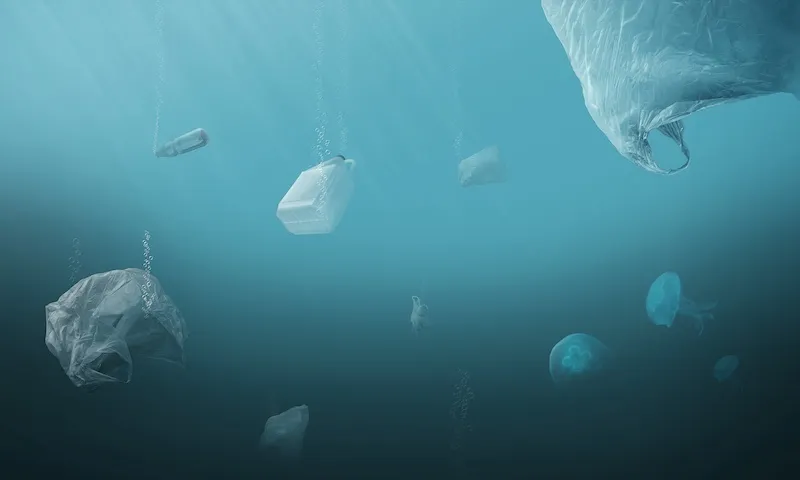
Roadmap for the reopening of REACH: �one substance, one assessment�
The European Commission's Chemicals Strategy should lead to a reopening and updating of the REACH regulation (Registration, Evaluation and Authorisation of Chemicals).
As things stand, nothing has been definitively agreed upon. However, one main element is at the centre of all discussions: the Commission's new motto, �One substance, one assessment�. Until now, different agencies could evaluate the same substance under different regulations, which can be problematic, both in terms of the efficiency of the evaluation, but also in terms of the pressure on companies to comply.
From now on, the aim would be to achieve a more "holistic" vision of substance evaluation in Europe, and to promote better collaboration between the various European agencies: ECHA (European Chemicals Agency), EFSA (European Food Safety Authority), EEA (European Environment Agency) et EMA (European Medicines Agency).
For this, several actions would be necessary:
- The establishment of a coordination mechanism to better anticipate risk assessment and management processes,
- Improved coordination between agencies in terms of the tasks to be carried out for the evaluation of the same chemical,
- Inter-agency access to available data and consequently, the provision of information in the same-structured format.
The agency that might take responsibility for this new coordination has not yet been defined. However, it is very likely that various regulations will need to be reopened in the light of this new strategy.
The context: the European Green Deal
The European Commission has published a strategy on chemicals, which has been endorsed by the Council of the Union. The chemicals strategy is part of the new European Green Deal presented by the Commission, the Council, the Economic and Social Committee and the Committee of the Regions. The official aim is to ensure better protection of human health and the environment from hazardous chemicals, to foster innovation and the transition to safe and sustainable chemicals.
However, several NGOs such as the European Environmental Bureau (EEB) and CHEMTrust have expressed their concerns in a letter to Ursula Von der Leyen, President of the European Commission.
The NGOs believe that the implementation of this new strategy towards an environment free of toxic substances could be paralysed because of the impact assessments launched on most of the proposals. In particular, they denounce a process that is being slowed down considerably and is costing European citizens billions of euros in terms of health impacts.
The chemical industry, for its part, has expressed itself through the Cefic (European Chemical Industry Council) and welcomes this new strategy. However, it questions the coordination of this new will with Europe's trade and innovation policies. Cefic is also against a total reopening of REACH, considering the regulation to be "the most comprehensive and protective regulatory framework for chemicals in the world�.
Wish to know more about the REACH regulation?

For more information, do not hesitate to contact Fang Zhou or one of our experts!
Roadmap for the reopening of REACH: �one substance, one assessment�
The European Commission's Chemicals Strategy should lead to a reopening and updating of the REACH regulation (Registration, Evaluation and Authorisation of Chemicals).
As things stand, nothing has been definitively agreed upon. However, one main element is at the centre of all discussions: the Commission's new motto, �One substance, one assessment�. Until now, different agencies could evaluate the same substance under different regulations, which can be problematic, both in terms of the efficiency of the evaluation, but also in terms of the pressure on companies to comply.
From now on, the aim would be to achieve a more "holistic" vision of substance evaluation in Europe, and to promote better collaboration between the various European agencies: ECHA (European Chemicals Agency), EFSA (European Food Safety Authority), EEA (European Environment Agency) et EMA (European Medicines Agency).
For this, several actions would be necessary:
- The establishment of a coordination mechanism to better anticipate risk assessment and management processes,
- Improved coordination between agencies in terms of the tasks to be carried out for the evaluation of the same chemical,
- Inter-agency access to available data and consequently, the provision of information in the same-structured format.
The agency that might take responsibility for this new coordination has not yet been defined. However, it is very likely that various regulations will need to be reopened in the light of this new strategy.
The context: the European Green Deal
The European Commission has published a strategy on chemicals, which has been endorsed by the Council of the Union. The chemicals strategy is part of the new European Green Deal presented by the Commission, the Council, the Economic and Social Committee and the Committee of the Regions. The official aim is to ensure better protection of human health and the environment from hazardous chemicals, to foster innovation and the transition to safe and sustainable chemicals.
However, several NGOs such as the European Environmental Bureau (EEB) and CHEMTrust have expressed their concerns in a letter to Ursula Von der Leyen, President of the European Commission.
The NGOs believe that the implementation of this new strategy towards an environment free of toxic substances could be paralysed because of the impact assessments launched on most of the proposals. In particular, they denounce a process that is being slowed down considerably and is costing European citizens billions of euros in terms of health impacts.
The chemical industry, for its part, has expressed itself through the Cefic (European Chemical Industry Council) and welcomes this new strategy. However, it questions the coordination of this new will with Europe's trade and innovation policies. Cefic is also against a total reopening of REACH, considering the regulation to be "the most comprehensive and protective regulatory framework for chemicals in the world�.
Wish to know more about the REACH regulation?

For more information, do not hesitate to contact Fang Zhou or one of our experts!







